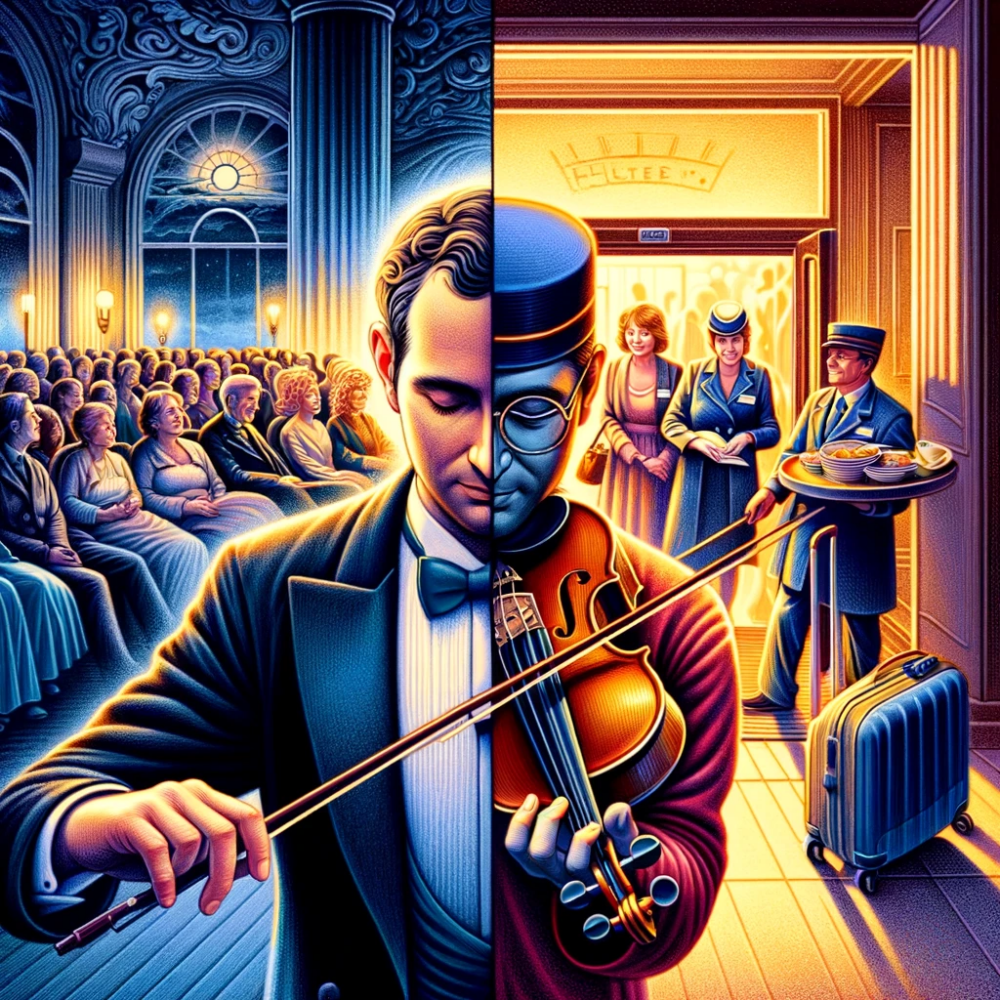Efficient destruction

In Utopia for Realists, Rutger Bregman wrote:
Some things in life, like music, resist all attempts at greater efficiency. While we can produce coffee machines ever faster and more cheaply, a violinist can’t pick up the pace without spoiling the tune.
I’ve also read Rory Sutherland’s ‘doorman fallacy’, though I don’t think I’ve ever read Alchemy from which it originates:
The ‘doorman fallacy’, as I call it, is what happens when your strategy becomes synonymous with cost-saving and efficiency; first you define a hotel doorman’s role as ‘opening the door’, then you replace his role with an automatic door-opening mechanism.
The problem arises because opening the door is only the notional role of a doorman; his other, less definable sources of value lie in a multiplicity of other functions, in addition to door-opening: taxi-hailing, security, vagrant discouragement, customer recognition, as well as in signalling the status of the hotel. The doorman may actually increase what you can charge for a night’s stay in your hotel.
It strikes me that there’s sometimes a crossover between these things. Sometimes, greater efficiency isn’t possible because we’re not comprehensively understanding the task. The task of playing the violin is not merely to produce all of the right notes in the correct order, just as the task of the doorman is not simply to open the door.
Something I’ve often found myself saying in the age of Microsoft Teams is that the point of attending a meeting sometimes has nothing to do with the meeting itself. Sometimes—perhaps even often—the value is in the corridor conversations before and after the meeting, either because that’s where the real ‘intelligence’ lies or because they provide an opportunity for solid relationship building. I’m not yet aware of a good online recreation of that aspect of meetings.
And, of course, this applies in all sorts of areas of professional life. I suspect this is more true in medicine than in many other professions, though perhaps I’m biased. Often, the value of a consultation isn’t really in the problem-focused clinical interaction but in the built trust and confidence.
Sometimes, making human interactions more efficient can destroy them as effectively as speeding up the violinist can ruin a piece of music.
The image at the top of this post was generated by DALL·E 3.
This post was filed under: Post-a-day 2023.